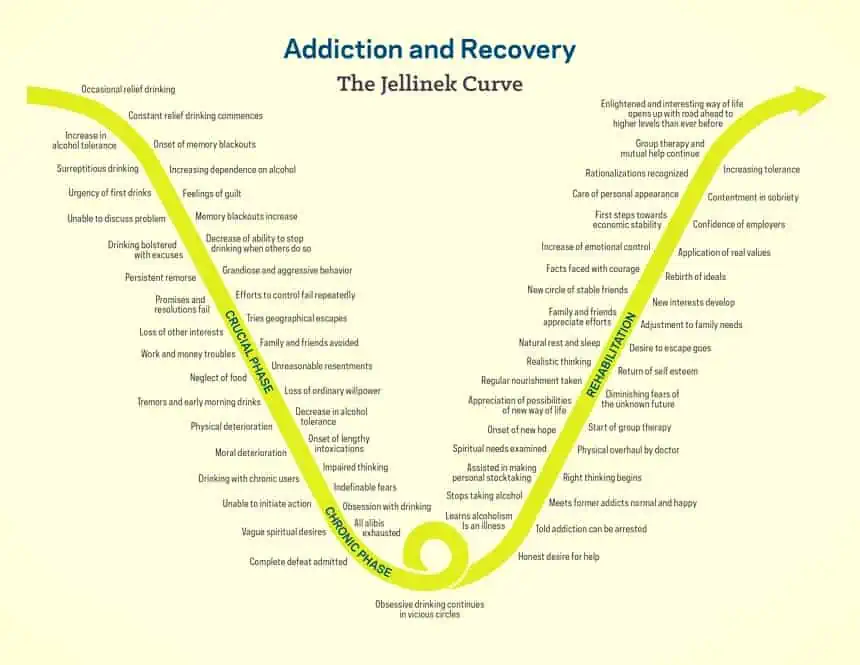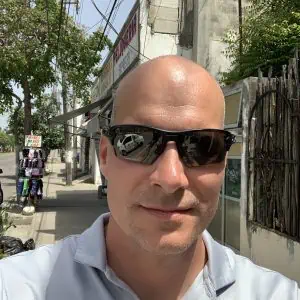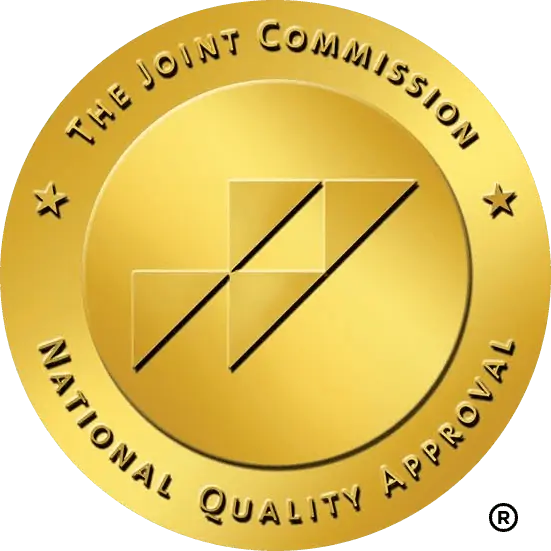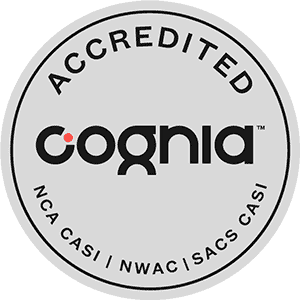If your teen is involved with or abusing alcohol, it helps to know about the Jellinek Curve. Developed sometime in the 1940s and 1950s by researcher E. Morton Jellinek, this U-shaped curve generally illustrates the five progressive phases of alcoholism. Jellinek was able to determine predictable behaviors of alcoholics by surveying and analyzing the data collected from thousands of people addicted to alcohol to arrive at trends and patterns.
The left side of the U, going downward, are where the crucial and chronic stages are located while the right side of the U, going upward, signifies the recovery stage. Understanding the progression helps you as a parent or caregiver to know how to break your teen’s cycle of alcohol dependence. This curve is not a diagnostic tool, but rather a tool to help families understand where they are with their alcohol struggles. Here are the five phases of alcoholism within the Jellinek Curve:
Phase One: Pre-Alcoholic
This is the starting phase of a potential drinking problem leading to alcoholism. Your teen will occasionally socially drink due to peer pressure, and then subtly move into drinking for relief from stress and pain. However, there’s little evidence of a real problem because your child will still function even if larger quantities of alcohol are being consumed. At this point, your teen is beginning to develop an increased tolerance of alcohol.
Phase Two: Early Alcoholic
Your teen is in a crucial stage of alcoholism where he or she can go in either direction. If he or she is going down the U-curve, your teen will begin to look for constant relief from drinking. At this point, your child may do the following:
- Binge drink
- Black out from drinking
- Feel an urgency for a first drink
- Lie about drinking
- Start to “steal” or spike drinks
- Think about drinking constantly
Phase Three: Middle Alcoholic
Your teen is in an early chronic stage of alcoholism and showing obvious signs of drinking that are beginning to affect everyday activities. He or she is likely beginning to feel guilty and remorse about drinking but is unable to discuss the problem. He or she may do the following:
- Become increasingly irritable
- Begin avoiding concerned family and friends
- Experience money problems
- Fail to control his or her drinking
- Make excuses for drinking
- Miss school, work, and other obligations
- Neglect to eat; physical deterioration
Phase Four: Late Alcoholic
Your teen is in a late chronic stage of deterioration, obsessed with drinking, and it’s affecting every aspect of his or her life; any attempt to stop results in withdrawal symptoms. Here are more warning signs that your child may be in phase four of the Jellinek Curve:
- Behavior becomes aggressive and grandiose
- Craves early morning drinks
- Drinking becomes a day-long activity
- Exhausts every alibi
- Hallucinations may begin if drinking ceases
- Impaired thinking and paranoia set in
- Signs of tremors if your child hasn’t had a drink
Phase Five: Recovery
Between phase four and five, your teen will admit complete failure at controlling the drinking problem. At this point, your child has reached the bottom of the U-curve. Your teen is stabilized, in treatment, then in maintenance in sober living, and transcendence from living for alcohol. At this phase, your teen will have:
- An honest desire for help
- Appreciates life again
- Experiences spiritual awakening
- Learns that alcoholism is an illness
- Meets former addicts who are now normal and happy
If you think your child is somewhere between phase one and four on the Jellinek Curve, seek help. Turn to your doctor who can help you find assistance such as group therapy, family counseling and traditional support systems such as Alcoholics Anonymous. If you need longer-term counseling or residential programs, visit turningwinds.com. There, you’ll find compassionate experts who can help you find the answers you need to steer your teen up and into the right side of the U-shaped curve of rehabilitation.

